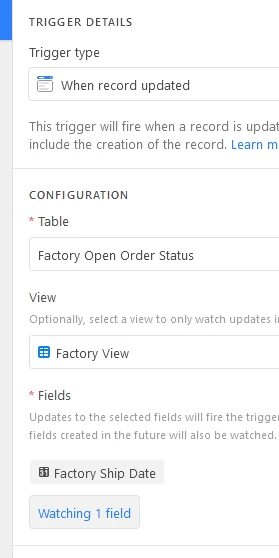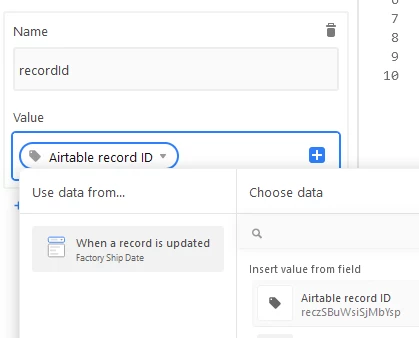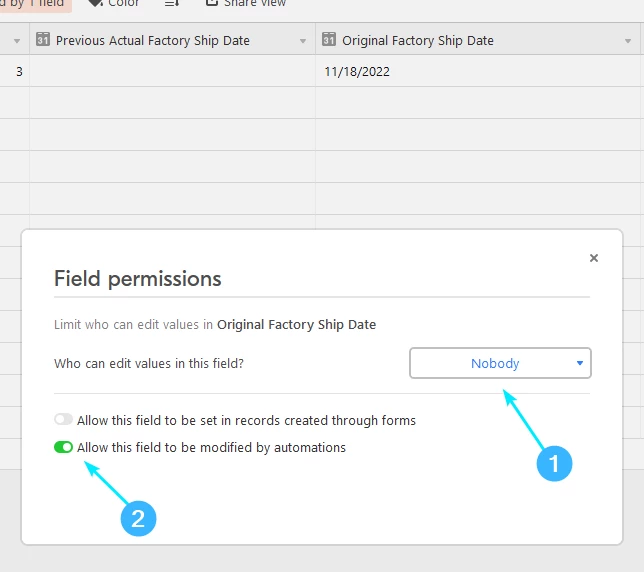Thanks in advance to everyone that helps me with this!
For some context, I’ve built a Base with 2 tables to track my Customer order for items that we manufacture on per order basis. Here is the link to a Template Base
-
Customer Order logs
-
Factory Orders Status Tracker for the orders that are created to manufacture items to fulfill the customer’s order.
The Functionality I’m trying to Implement is in the Factory Order Status Table. The factory creates a record in the table for each Item Style# for every Order and after a few days, they add a “Factory Ship Date” in a Date field.
Now, I want to capture the Original Date/value that was entered in this “Factory Ship Date” field and copy it over to “Original Factory Ship Date” in case the Factory changes the date Ship date due to delays, so that I can track the Actual Ship date vs. the “Original Ship date” that was reported by the Factory.
Additional Help: An additional thing that would be nice to have is seeing how many times the “Factory Ship Date” field has been updated by using “Last modified” field and adding an increment of “1” to a Number field every time Last Modified is triggered.
Update: We also use Make.com(Integromat) in case that can help make this possible






